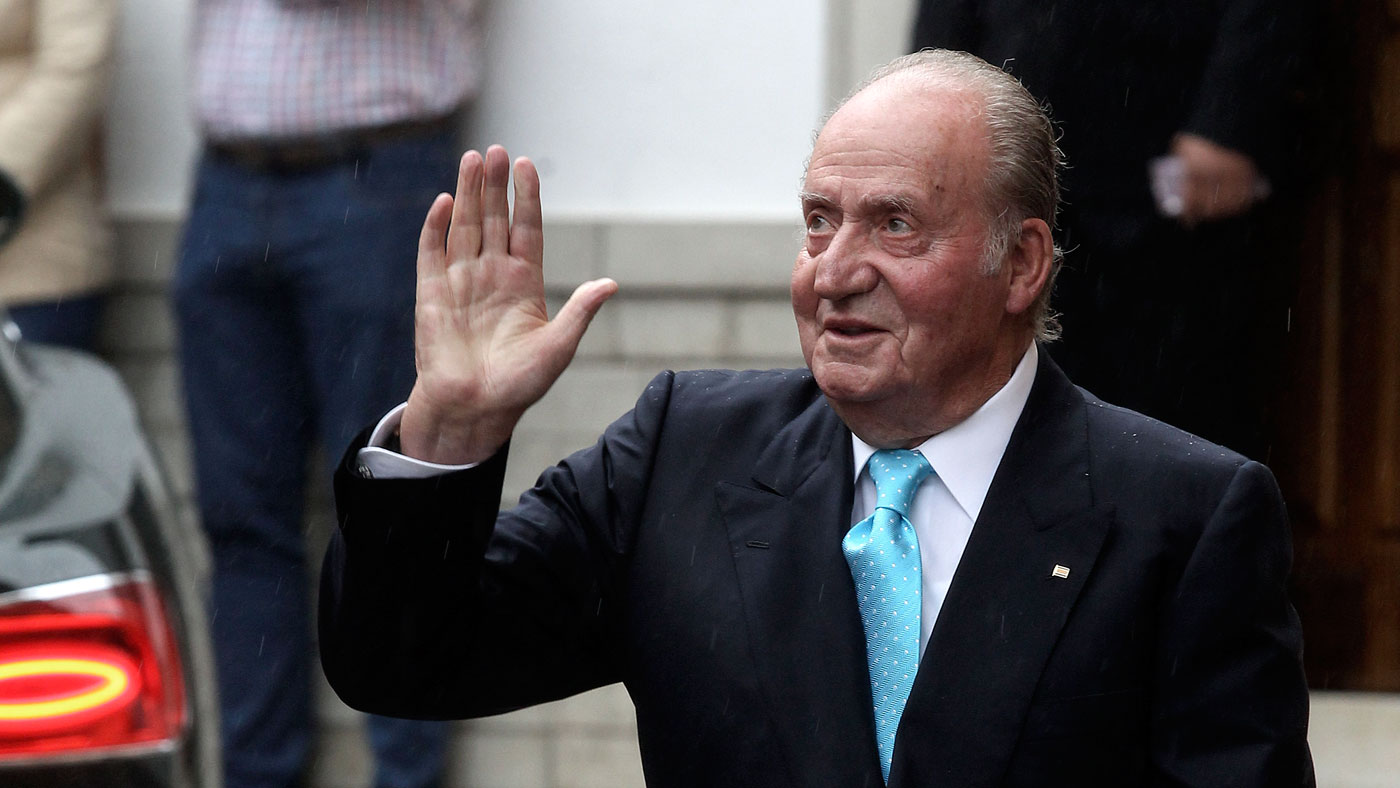Here today, Juan tomorrow: why Spain’s former king has fled into exile
Corruption scandal threatens to tarnish legacy of monarch who re-established Spanish democracy

A free daily email with the biggest news stories of the day – and the best features from TheWeek.com
You are now subscribed
Your newsletter sign-up was successful
Spain’s former king Juan Carlos has gone into exile following the launch an investigation into his finances by state prosecutors.
“It is a humiliating exit for a king who had once seemed set to go down in history as the leader who skilfully guided Spain from dictatorship to democracy after the death of General Franco in 1975,” says the BBC.
The whereabouts of the 82-year-old are not known. A royal source told CNN “that the former monarch ‘has left already’, but declined to reveal where he has gone”.
The Week
Escape your echo chamber. Get the facts behind the news, plus analysis from multiple perspectives.

Sign up for The Week's Free Newsletters
From our morning news briefing to a weekly Good News Newsletter, get the best of The Week delivered directly to your inbox.
From our morning news briefing to a weekly Good News Newsletter, get the best of The Week delivered directly to your inbox.
The former king announced yesterday that he was leaving, “a decision I make with deep emotion but great serenity”, in a letter to his son and successor, King Felipe VI. Juan Carlos wrote that his departure would “best serve the people of Spain, its institutions, and you as king”.
The abrupt exit was prompted by “the opening of a supreme court investigation into suspected payments related to a €7bn [£6.3bn] high-speed rail project in Saudi Arabia”, the Financial Times reports. The contract to build a rail link between Mecca and Medina was awarded to a Spanish consortium in 2011.
Prosecutors in Spain and Switzerland are investigating links between that deal and “documents that allege Juan Carlos may have received $100m [£77m] from Saudi Arabia's king in 2008”, says CNN.
In the meantime, life as an emigre may come easily to the former king. “He was born in exile as well, in Rome,” says the Financial Times, “and served as Spain’s king for almost 40 years, starting upon the death of dictator Francisco Franco in 1975.”
A free daily email with the biggest news stories of the day – and the best features from TheWeek.com
Although Juan Carlos was celebrated for his role in establishing democracy and thwarting a military coup in 1981, his reign ended in ignominy. He abdicated in 2014 “following a corruption investigation involving his daughter's husband and a controversial elephant hunting trip the monarch took during Spain’s financial crisis”, the BBC reports.
Holden Frith is The Week’s digital director. He also makes regular appearances on “The Week Unwrapped”, speaking about subjects as diverse as vaccine development and bionic bomb-sniffing locusts. He joined The Week in 2013, spending five years editing the magazine’s website. Before that, he was deputy digital editor at The Sunday Times. He has also been TheTimes.co.uk’s technology editor and the launch editor of Wired magazine’s UK website. Holden has worked in journalism for nearly two decades, having started his professional career while completing an English literature degree at Cambridge University. He followed that with a master’s degree in journalism from Northwestern University in Chicago. A keen photographer, he also writes travel features whenever he gets the chance.
-
 Epstein files topple law CEO, roil UK government
Epstein files topple law CEO, roil UK governmentSpeed Read Peter Mandelson, Britain’s former ambassador to the US, is caught up in the scandal
-
 Iran and US prepare to meet after skirmishes
Iran and US prepare to meet after skirmishesSpeed Read The incident comes amid heightened tensions in the Middle East
-
 Israel retrieves final hostage’s body from Gaza
Israel retrieves final hostage’s body from GazaSpeed Read The 24-year-old police officer was killed during the initial Hamas attack
-
 China’s Xi targets top general in growing purge
China’s Xi targets top general in growing purgeSpeed Read Zhang Youxia is being investigated over ‘grave violations’ of the law
-
 Panama and Canada are negotiating over a crucial copper mine
Panama and Canada are negotiating over a crucial copper mineIn the Spotlight Panama is set to make a final decision on the mine this summer
-
 Why Greenland’s natural resources are nearly impossible to mine
Why Greenland’s natural resources are nearly impossible to mineThe Explainer The country’s natural landscape makes the task extremely difficult
-
 Iran cuts internet as protests escalate
Iran cuts internet as protests escalateSpeed Reada Government buildings across the country have been set on fire
-
 US nabs ‘shadow’ tanker claimed by Russia
US nabs ‘shadow’ tanker claimed by RussiaSpeed Read The ship was one of two vessels seized by the US military


